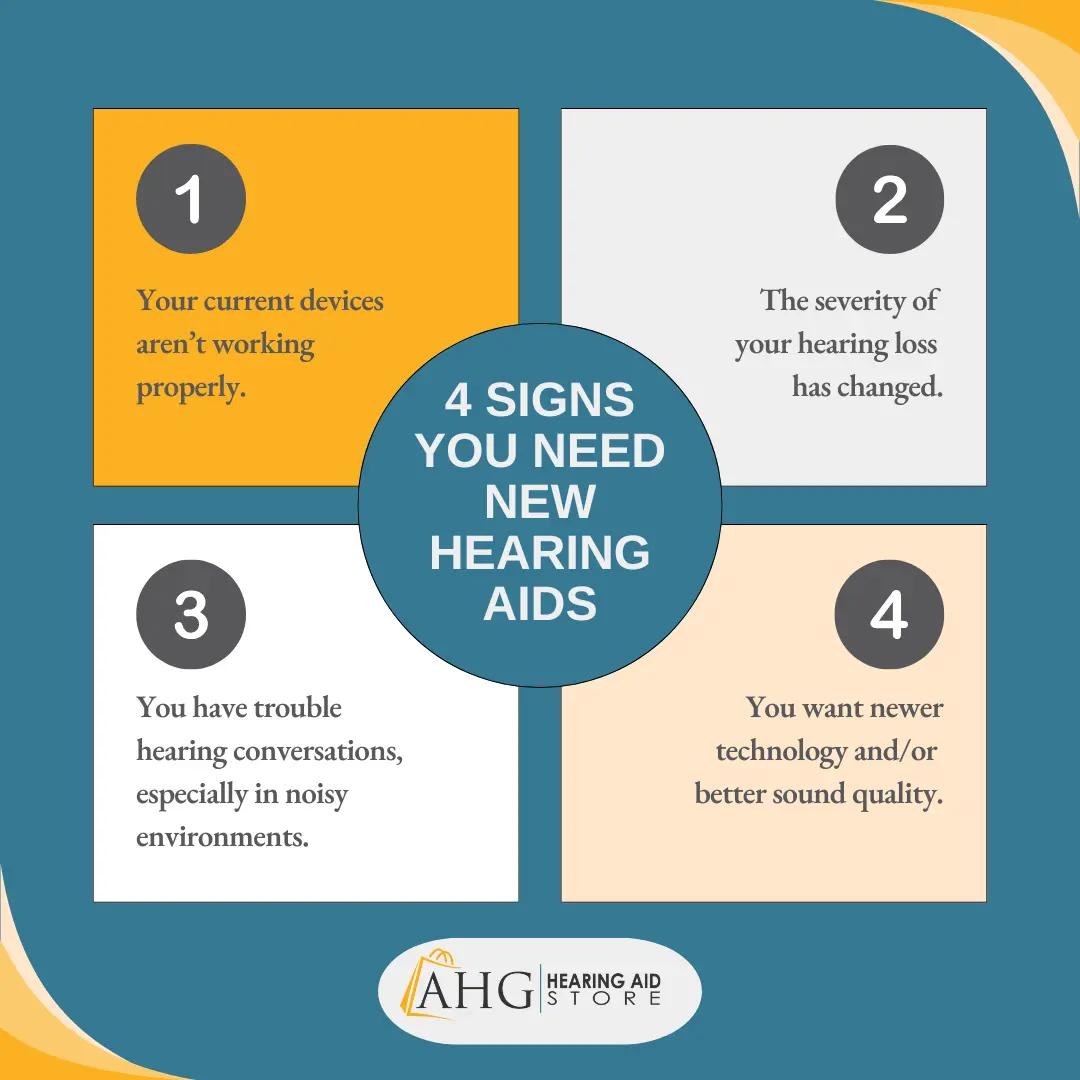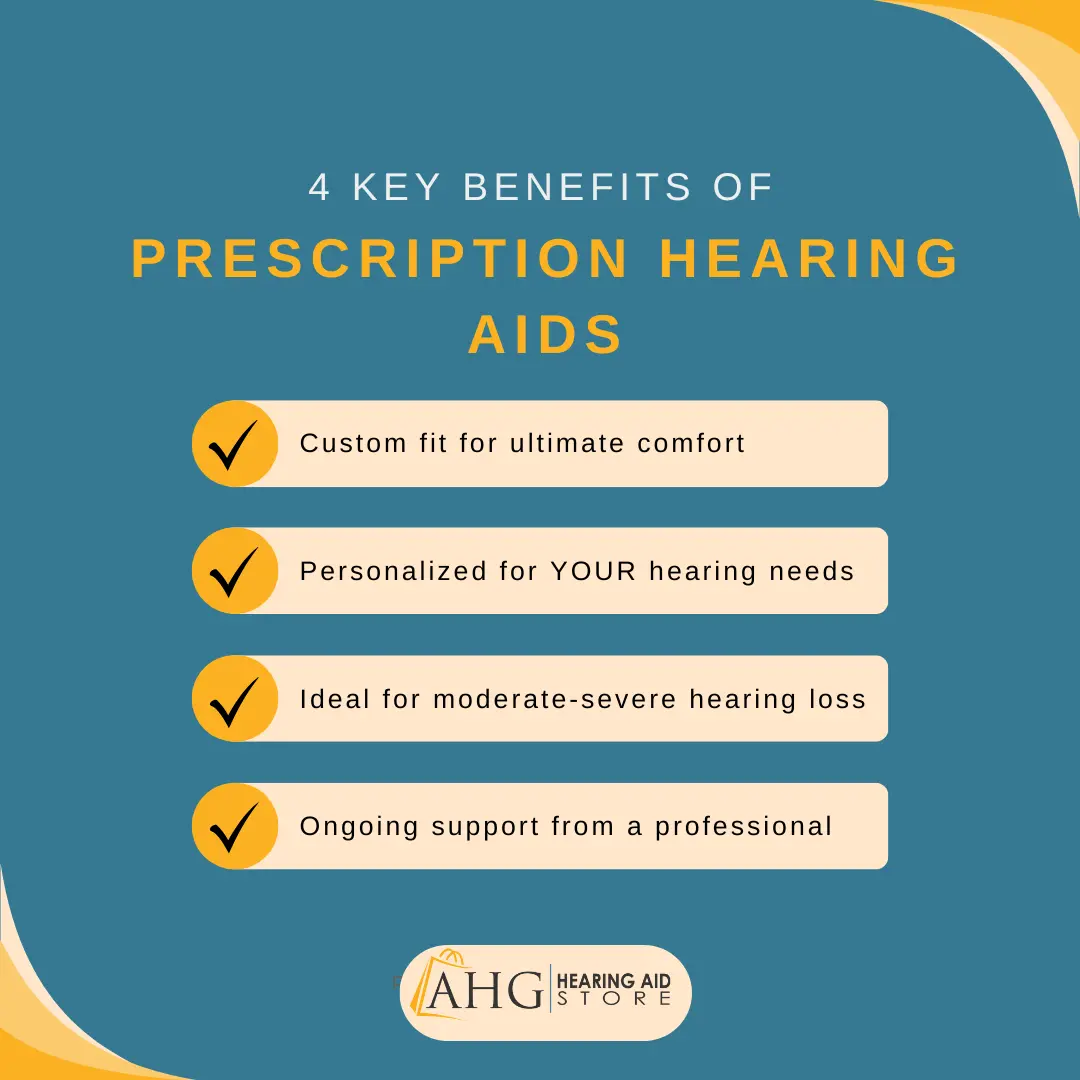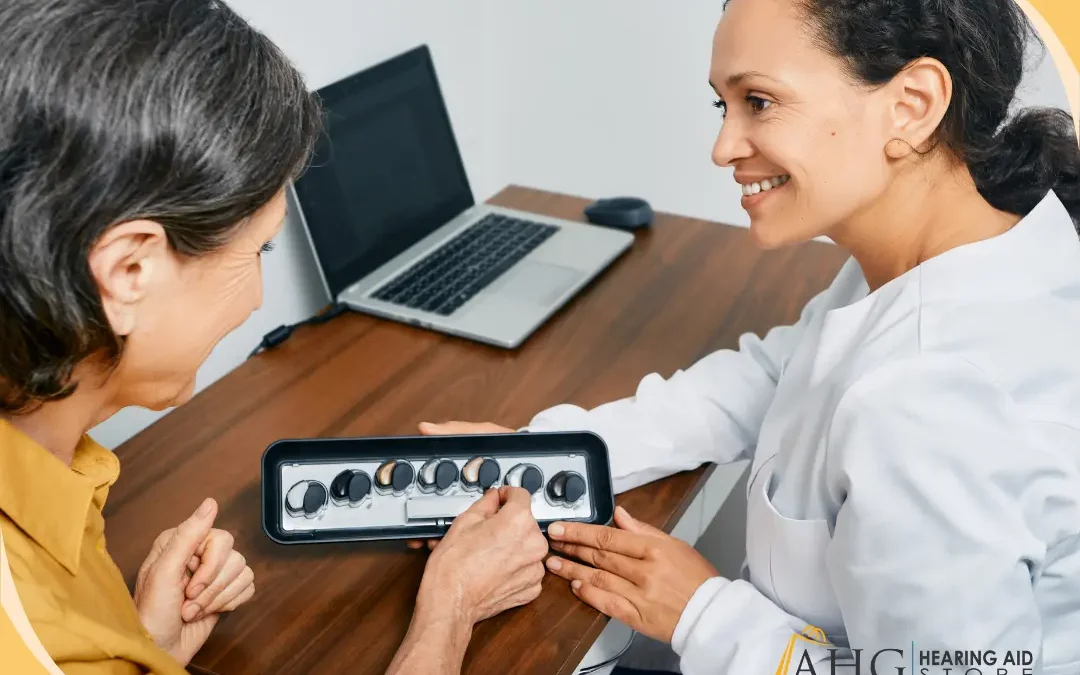 If you’re struggling to hear conversations, turning the TV volume higher than usual, or frequently asking people to repeat themselves, it might be time to consider getting new hearing aids. Whether you’re new to wearing hearing aids altogether or simply upgrading older hearing aids you already have, navigating the process can feel overwhelming, especially when it comes to cost. But don’t worry—there are smart ways to pay for hearing aids and we’re here to guide you every step of the way.
If you’re struggling to hear conversations, turning the TV volume higher than usual, or frequently asking people to repeat themselves, it might be time to consider getting new hearing aids. Whether you’re new to wearing hearing aids altogether or simply upgrading older hearing aids you already have, navigating the process can feel overwhelming, especially when it comes to cost. But don’t worry—there are smart ways to pay for hearing aids and we’re here to guide you every step of the way.
Why You Might Need New Hearing Aids
Just like other good things in life, hearing aids don’t last forever. Most devices last about 3–7 years, depending on the model, how well they’ve been maintained, and changes in your hearing.
Other than simply considering their age, how do you know if it’s time to upgrade your hearing devices? Take a look at the list below and see if any of these situations sound familiar.
You might need new hearing aids if:
- The devices you currently have aren’t working properly.
- The severity of your hearing loss has changed.
- It’s more difficult to understand conversations or you’re having trouble hearing in noisy environments.
- You’re looking for newer technology and better sound quality.

What’s New in Modern Hearing Aid Technology?
If you’ve never worn hearing aids before, or if it’s been a few years since you purchased your last set, you might be surprised at how far hearing aid technology has come! Today’s hearing aids are more discreet than ever and offer a range of advanced features that improve sound clarity and make life easier:
- Bluetooth connectivity enables you to connect phone calls or stream audio directly to your hearing aids.
- Rechargeable batteries mean you don’t have to buy and swap out tiny batteries anymore!
- Directional microphones make it easier to understand conversations in noisy environments.
- Artificial intelligence (AI) can automatically adjust hearing aid settings based on your environment.
- Discreet styles like invisible-in-the-canal (IIC) and sleek behind-the-ear (BTE) options make it easy to wear hearing aids without others noticing.
These features can significantly enhance your daily life, but they also come with a range of price points, which brings us to …
What to Look for in New Hearing Aids
While all the bells and whistles are certainly available, it doesn’t mean you have to have them all in YOUR hearing devices. When shopping for new hearing aids, it’s important to consider the following factors:
- Your lifestyle – Are you active and constantly on the go, or do you mostly stay at home?
- The severity of your hearing loss – Some hearing aid models are meant only for mild hearing loss, while others are effective for moderate to severe hearing loss.
- Comfort and fit – Remember that hearing aids will only help you if you actually wear them! Since you’ll have them in or behind your ears for hours at a time, finding a comfortable set is essential.
- Ongoing support – Work with a hearing expert who offers follow-up care, routine hearing aid adjustments, and repairs. This is where working with an audiologist can make a huge difference.
Now that you’ve decided that getting new hearing aids is a good idea, let’s talk about where to get them.
Over-the-Counter (OTC) Hearing Aids or Prescription Hearing Aids – Which Option is Best?
In the not-so-distant past, over-the-counter hearing aids became available to the general public in retail stores across the country. While OTC hearing aids may seem like a more affordable option, they’re often a one-size-fits-all solution. Without a proper hearing test or professional fitting, over-the-counter devices may not meet your hearing needs. Or, even worse, they may amplify the wrong frequencies.
In contrast, prescription hearing aids from an audiologist are custom-programmed to your specific hearing profile. This typically ensures better performance, comfort, and long-term success. Plus, you’ll have access to expert support for adjustments, repairs, and regular check-ups.

How Much Do New Hearing Aids Cost?
Quality hearing aids typically range from $2,000 to $7,000 for a pair, depending on the brand, features, and service package. While the cost might seem high, remember that you’re investing in your hearing health and overall quality of life.
How to Pay for New Hearing Aids
Fortunately, there are several ways to make hearing aids more affordable. The most common include:
- Insurance benefits: Some insurance plans offer at least partial coverage for hearing aids. Check your specific plan for details.
- HSA/FSA: Hearing aids are eligible expenses under Health Savings Accounts and Flexible Spending Accounts.
- Financing plans: Some providers offer affordable payment plans.
- Veterans benefits: If you’re a veteran, you may qualify for hearing aids through the US Department of Veterans Affairs (VA).
- Nonprofit assistance: Organizations like the Hearing Loss Association of America offer support for those in need.
New Hearing Aids in Mesa and Scottsdale, AZ
At Advanced Hearing Group, we do more than just sell hearing aids. We also become your partners in better hearing. Our experienced audiologists first conduct a comprehensive hearing evaluation. Based on the results of that, they will recommend the best hearing aids (if needed) for your specific hearing type, your lifestyle, and your budget. Then, they’ll help you explore your payment options, handle the fitting and programming of your devices, and provide ongoing hearing aid support, adjustments, maintenance, and repairs when needed.
If you’re ready to take the first step toward better hearing and a better life, schedule an appointment with us today!





